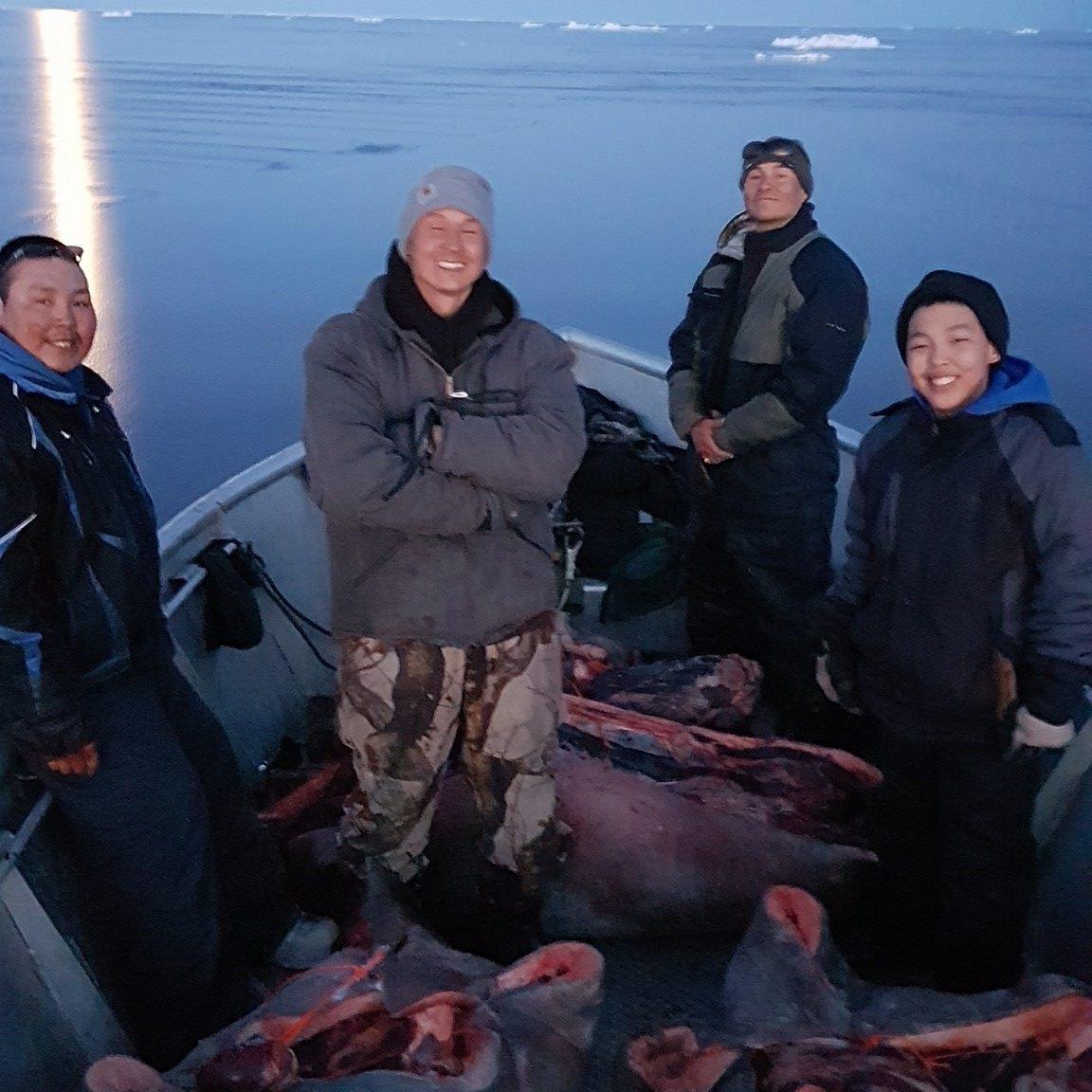
39-year-old Joseph Lake texted his brother-in-law Friday evening, saying that he, his cousin and nephew were anchored in the Bering Sea. Lake had just ran out of gas, had five-percent battery on his phone and had just barely drifted into cell phone range.
His brother-in-law then contacted State Troopers, who decided to wait out the poor visibility and weather conditions at sea to dispatch Hooper Bay Search and Rescue the next day.
As night grew darker, Lake and his crew realized no one would be searching until morning, and the group settled in for the night.
Lake said they used a tarp for cover, had drinking water, warm tea, coffee, and seal oil along with other native foods.
“We had a lot of dried seal meat from our previous trips seal hunting,” Lake said. “We also had dried pike from our trips that we went up to the Yukon, to fish. We had dried smelt from the Bay here.”
The next day Hooper Bay’s Search and Rescue team couldn’t find the seal hunters in the choppy surf and strong winds. The team called in the U.S. Coast Guard, who sent out a C-130 airplane that located the boat around 5 p.m. Saturday. The airplane circled overhead while Search and Rescue met the missing seal hunters to give them gas and escort them to port.
Coast Guard Official Meredith Manning, said that it’s always good to have more than one form of communication, especially in Alaskan waters, and recommends boaters carry a VHF radio.
Rescued seal hunter Joseph Lake is an experienced seal hunter, and says he usually hunts in a group of other boats that have VHF radios. But he became separated from the group in the choppy water and high swells.
And in those harsh weather conditions, Lake’s boat burned more fuel than on previous hunting trips, causing him to run out of gas.
“Quyana agayun [Thank you God] and thank everybody that was out there searching for us and everybody that participated in getting us home,” Lake said.
Lake was prepared to create a makeshift sail from a tarp, to get home had they not been found.
Since getting home Saturday, he’s already bought two VHF radios for his next trip.




